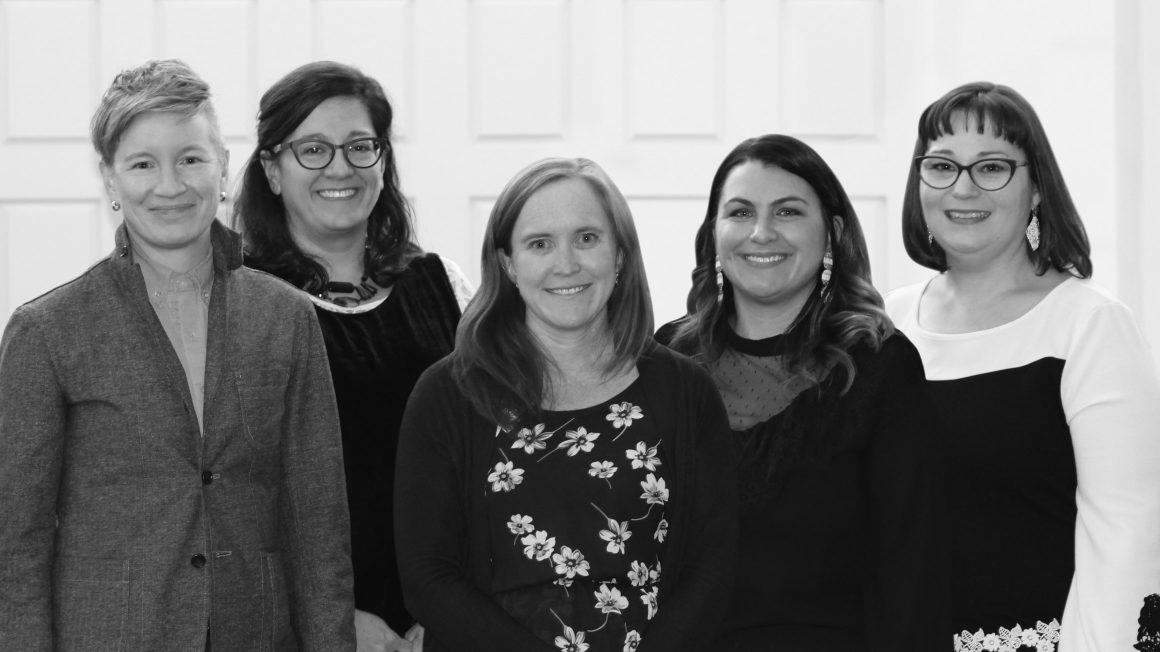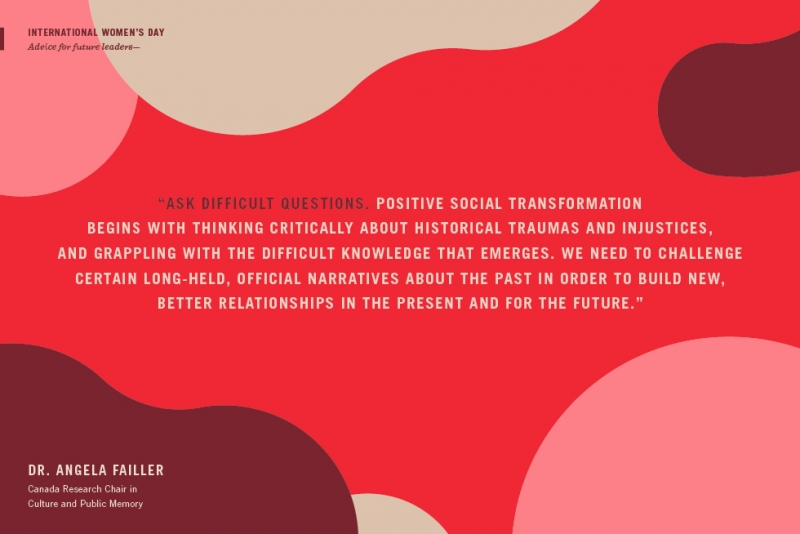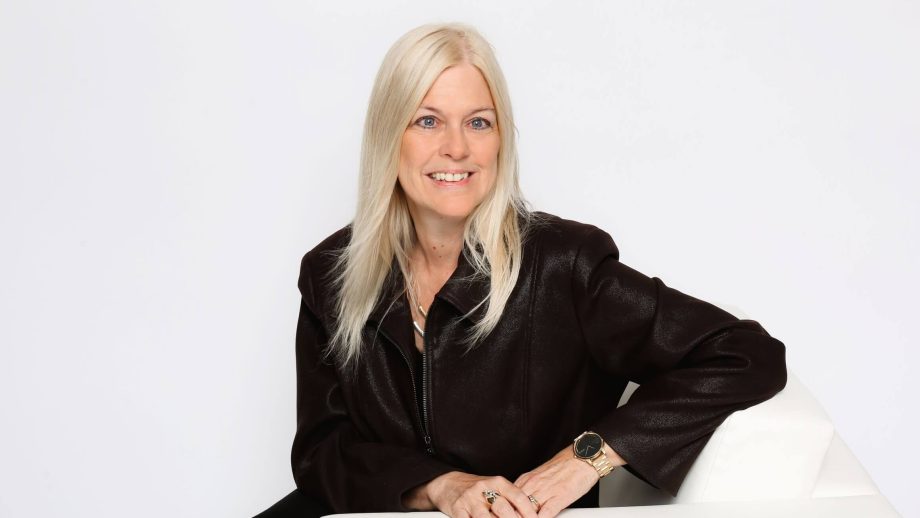In recognition of International Women’s Day, The University of Winnipeg is highlighting the work of five women leaders, researchers, and community builders whose work is making a significant contribution to Canada’s environment, health, communities, and economy.
“Women across Canada are leading and innovating in all areas of society,” said UWinnipeg President and Vice-Chancellor, Dr. Annette Trimbee. “They lead organizations, generate ideas, conduct valuable research, and build our communities. I am proud to celebrate their contributions and accomplishments on International Women’s Day. Let’s remember this truth throughout the year as well!”
Research is an essential part of UWinnipeg, and the contributions and accomplishments that take place year-round are pretty impressive. The University is home to eight Canada Research Chairs, including five talented women, three of whom are Indigenous. All are leading change in remarkable ways as they probe important ideas, and create innovative solutions for complex problems. We asked them to share their advice to future women leaders.
Advice to future leaders
“Ask difficult questions. Positive social transformation begins with thinking critically about historical traumas and injustices, and grappling with the difficult knowledge that emerges. We need to challenge certain long-held, official narratives about the past in order to build new, better relationships in the present and for the future,” said Dr. Angela Failler (Canada Research Chair in Culture and Public Memory).
“Listen, acknowledge, remunerate, reorient. Many women – Native women especially – are undertaking the most critically important work on campus and across the community and the country. Their intellectual, physical, and relationship-building work to decolonize and Indigenize makes our world a safer, cleaner, and healthier place to live. International Women’s day is a reminder that women have done and still do this work largely in obscurity and disregard,” said Dr. Mary Jane Logan McCallum (Canada Research Chair in Indigenous People, History, and Archives).
“Collaborate with others. Interdisciplinary research is key to increasing our understanding of the world around us. I am thankful that I work with a diverse group of researchers, practitioners, and decision-makers. This reduces the gaps in our understanding and ensures we are making informed decisions to protect ecosystems and water quality,” said Dr. Nora Casson (Canada Research Chair in Environmental Influences on Water Quality).
“The future is rooted in collaboration. Art can be a catalyst to radically transform space and create social change. It can rupture places and spark difficult dialogues for generations to come. The creation of public art, and expansion of digital technologies as decolonial tools allows underrepresented communities to make space for new, creative interventions, and ways of knowing,” said Dr. Julie Nagam (Canada Research Chair in Indigenous Arts, Collaboration, and Digital Media).
“Build community. Relationships guide the development of my research, from the initiation of an idea, to the development and implementation of a project, to the final output. When you take a community-driven research approach to understanding an issue, you have a better chance of asking the right questions, in the right way,” said Dr. Jaime Cidro (Canada Research Chair in Health & Culture).
About UWinnipeg’s five female Canada Research Chairs
Dr. Angela Failler (Canada Research Chair in Culture and Public Memory) examines how practices of culture and public memory are used to grapple with the difficult knowledge of historical traumas and their after-effects. Her research pays particular attention to memorials, museums, commemorative artworks, community-based practices of remembrance, and government-sponsored memory projects. She is interested in the potential for these sites/projects to advance reconciliation, redress, and decolonized forms of relating.
Dr. Mary Jane Logan McCallum (Canada Research Chair in Indigenous People, History and Archives) is promoting a central role for Indigenous people in the production, preservation, and use of knowledge about history. Her objectives are two-fold: first, to support Indigenous scholars’ and communities’ efforts in researching and teaching knowledge about the past in ways that reaffirm relationships to land, environment and other people and support Indigenous self-determination. The second objective is to inform local, provincial, and national institutions of Indigenous historical preservation in Canada on topics related to Indigenous historical research including access, ethics and research methods and their implications for Indigenous people, communities and lands.
Dr. Nora Casson (Canada Research Chair in Environmental Influences on Water Quality) is investigating effects of global change on nutrient cycling in boreal watersheds, and ultimately enhance understanding of how human actions impact water quality across the region. Canada’s boreal region is rich in water resources, which provide cultural, economic, and ecological benefits to Canadian communities. Water quality in this region is subject to many environmental pressures; notably, rates of climate change are among the highest of anywhere on the continent. Rising temperatures, changes to precipitation patterns, and declining snow cover will fundamentally alter fluxes of water and chemicals through the environment.
Dr. Julie Nagam (Canada Research Chair in Indigenous Arts, Collaboration and Digital Media and former Research Chair of Indigenous Arts of North America, a joint position with the Winnipeg Art Gallery) is building an Indigenous Research Centre of Collaborative and Aabijijiwan: The New Media Lab, in Winnipeg, Canada. As a scholar and artist, she is interested in revealing the ontology of land, which contains memory, knowledge and living histories. Her SSHRC research includes digital makerspaces + incubators, mentorship, digital media and design, international collaborations, and place-based knowledge. She is an associate professor in the History of Art Department at The University of Winnipeg, and inaugural artistic director for 2020/21 for Nuit Blanche Toronto, the largest public exhibition in North America. She is a collective member of GLAM, which works on curatorial activism, Indigenous methodologies, public art, digital technologies, and engagement with place. Her scholarship, curatorial, and artistic practice has been featured nationally and internationally.
Dr. Jaime Cidro (Canada Research Chair in Health & Culture) is examining how an Indigenous doula program can address poor health, social, and cultural outcomes for First Nations women who travel for birth in partnership with First Nations Health and Social Secretariat of Manitoba and the Manitoba Indigenous Doulas Initiative. Medical maternal evacuation has been a common practice in First Nations communities in Canada for decades and the impacts are becoming recognized as contributing to a range of negative cultural, health, and social consequences. Adequate and appropriate support is identified as one way to ameliorate some of these negative outcomes, particularly when that support is culturally based.
International Women’s Day is a global celebration of the social, economic, cultural, and political achievements of women. The annual celebration takes place each year on March 8.







